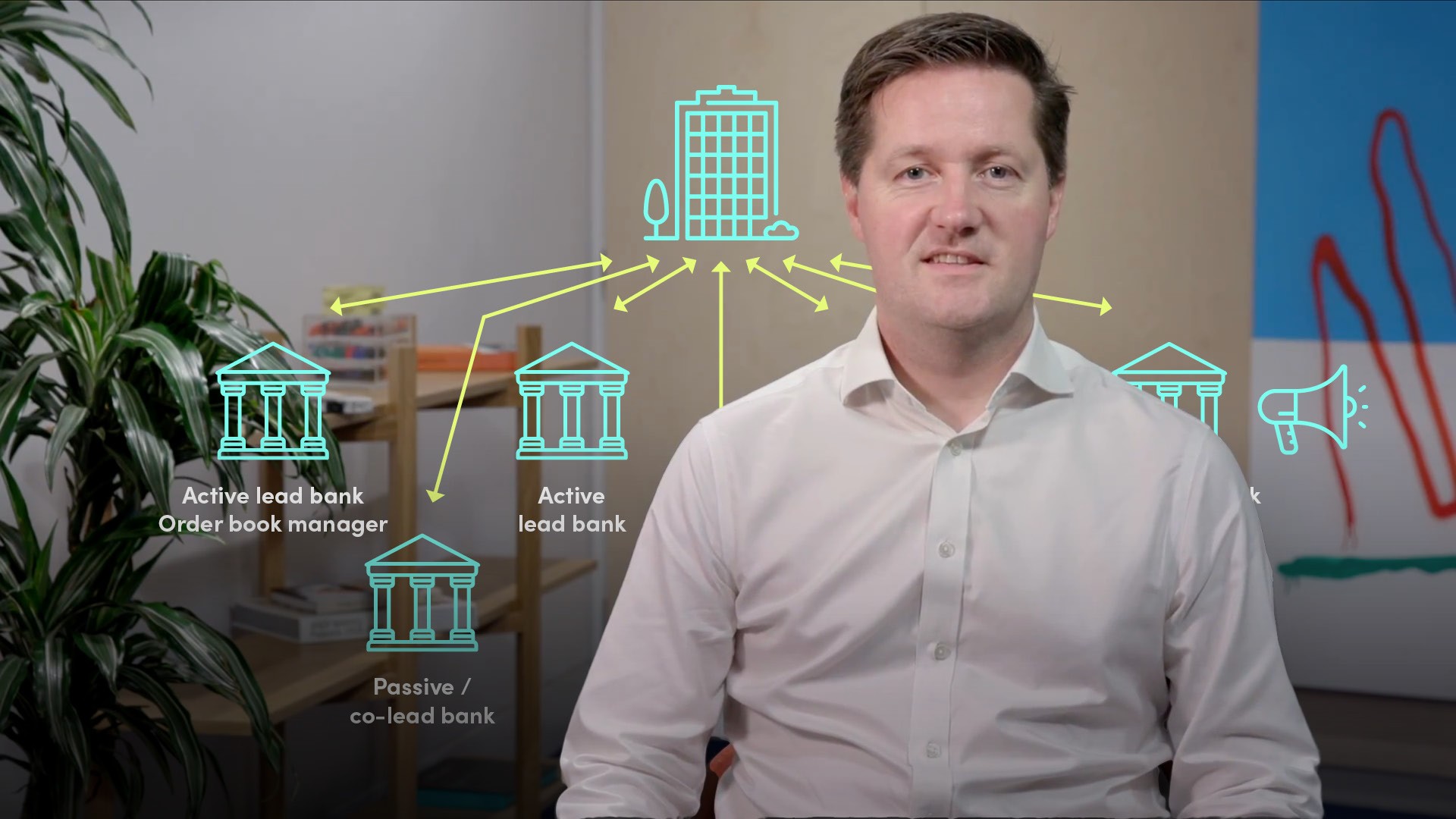
Bond Bookbuilding Pre-launch

Nigel Owen
20 years: Debt capital markets
While bond pricing has different processes and conventions in individual markets, the bookbuilding process is much more universal. Nigel begins to explain this process by outlining the purpose of bookbuilding and the role of the syndicate bankers once the mandate is received.
While bond pricing has different processes and conventions in individual markets, the bookbuilding process is much more universal. Nigel begins to explain this process by outlining the purpose of bookbuilding and the role of the syndicate bankers once the mandate is received.
Subscribe to watch
Access this and all of the content on our platform by signing up for a 7-day free trial.

Bond Bookbuilding Pre-launch
7 mins 7 secs
Key learning objectives:
What is a syndicate banker’s job?
What requirements were put in place by MAR to address soft soundings?
What is discussed on the penultimate call between the syndicate bankers and the issuer?
Overview:
Bond bookbuilding involves an issuer, formally appointing a group of syndicate bankers to underwrite a bond. An optimal deal will raise the amount of money the issuer needs, paying the lowest interest rate, at a maturity that suits its business profile and financing needs.
Subscribe to watch
Access this and all of the content on our platform by signing up for a 7-day free trial.
What is a syndicate banker’s job?
- Understand the raw elements of supply and demand. They constantly watch both primary and secondary markets, watching supply and demand ebb and flow and monitoring how that affects price levels of bonds of differing credit quality, currency, liquidity and maturity
- They then apply this knowledge to identify optimal windows for an issuer to launch a new deal. An optimal deal will raise the amount of money the issuer needs, paying the lowest interest rate, at a maturity that suits its business profile and financing needs
What is the process for a benchmark deal?
- This is generally accepted to mean an issue size of $/£500m for corporate bond issues
- An issuer will put together a syndicate of banks to execute the deal. This typically consists of three or four active lead banks, and often a number of passive and/or co-lead banks. The latter two groups have much less of a role to play in the execution
What is a mandate letter?
A mandate letter is a formal commitment letter, from the borrower, formally appointing the bank to underwrite a bond when the relationship banker has won the mandate.What does the mandate dictate?
- The minimum size deal the issuer wants to achieve
- The maturity that the bonds will be issued at
What is the soft sounding process?
- This process would see each syndicate banker, before the deal was launched, approach a friendly investor whom he suspected would have significant interest in the deal, and suggest where he thought the fair value for the new deal was.
- In return for the early notification of the deal, the investor would indicate his likely interest in the deal in terms of the potential size of his ticket and what price he saw fair value.
- Taking that information back to his colleagues in the mandicated syndicate, comparing notes from investors they had spoken to gave them a real insight into what level the deal would likely price at.
- Then when the call with the issuer was held, the syndicate could be confident that the pricing targets they were suggesting to the issuer were achievable, knowing they had certain pre-orders already in their pockets.
What requirements were put in place by MAR to address soft soundings?
With the introduction of MAR, this meant what previously was discovered through sounds was then classified as material non-public information.
Extra requirements were put in place on those who receive the soundings. If all information was not shared publicly with all investors at the same time, this left syndicate bankers with two options:
- Option 1
- For an investor to receive the information from the syndicate bankers, they now have to agree to be wall-crossed. This is the act of giving investors confidential pre-sounds ahead of equity bond or equity-capital raisings, in effect making them insiders
- Option 2
- The syndicate bankers can have a more vague discussion with potential investors. For example, “Would you have interest in a medium maturity benchmark euro new issue from a car company?”
What is discussed on the penultimate call between the syndicate bankers and the issuer?
They agree on the strategy for bookbuilding and execution:- Once the maturity and target size of the deal has been agreed, the syndicate will present the final credit spread they are trying to achieve
- With the planned final spread agreed, the syndicate then needs to explain the route with which they plan to achieve that - this starts with Initial Price Thoughts (IPTs). The pathway from IPTs to Final Spread is typically a tightening of 15-20 basis points
- Assuming the issuer agrees with that proposed process, the syndicate will group the following morning ready to launch the deal
Subscribe to watch
Access this and all of the content on our platform by signing up for a 7-day free trial.

Nigel Owen
There are no available Videos from "Nigel Owen"



























